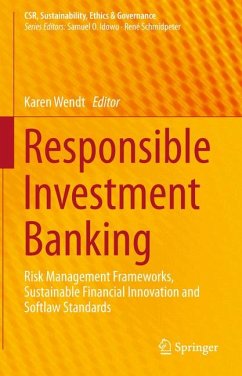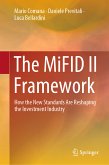This book provides evidence on the relevance of environmental and social factors in decision making. It discusses the Gold Standard Frameworks for integrating extra-financial risks into the philosophy, culture, strategies, products and value chain management procedures of investment and banking and highlights the current emergence of global administrative law. New emerging topics like positive impact investing and finance, climate friendly markets, human rights, the enhanced role of fiduciary duties and shared values are approached with a lot of examples for practical application. Steps towards a new banking culture, a new climate for double loop learning and sustainable financial innovation are outlined and the additional benefits of robust stakeholder engagement explained. The anthology paves the way from robust impact and risk management to positive impact creation and a new investment culture. As well, challenges for the implementation and ways to overcome them are broadly discussed. The book is rooted in the fact that institutions and investors which fail to professionally integrate the management of extra-financial risk into their whole lending and investment chain and fail to move to positive impact creation may well loose positions and mandates and finally the trust of their clients, partners and stakeholders. The contributing authors of this anthology are internationally renowned experts in the field of ESG and impact investing. The compendium brings together practitioners and academics to allow a confluence of thoughts, concepts and viewpoints. This huge variety of perspectives and approaches makes this volume a comprehensive compendium on responsible investment and banking.
Dieser Download kann aus rechtlichen Gründen nur mit Rechnungsadresse in A, B, BG, CY, CZ, D, DK, EW, E, FIN, F, GR, HR, H, IRL, I, LT, L, LR, M, NL, PL, P, R, S, SLO, SK ausgeliefert werden.









